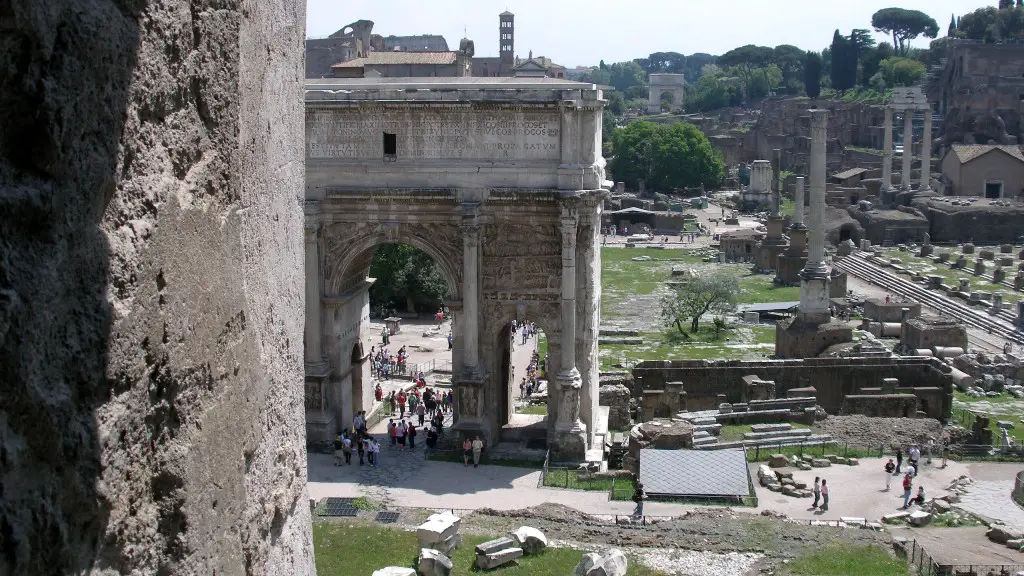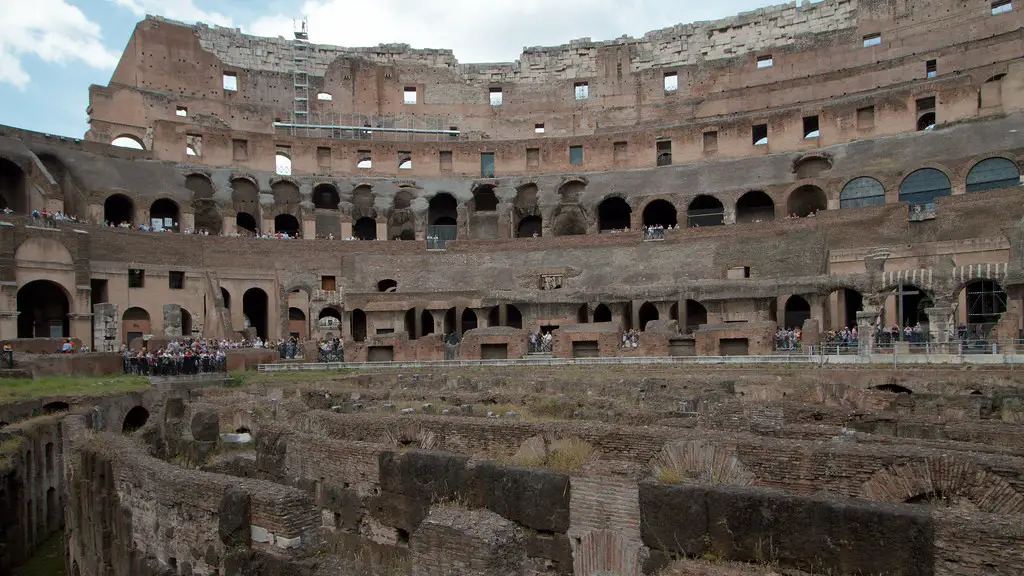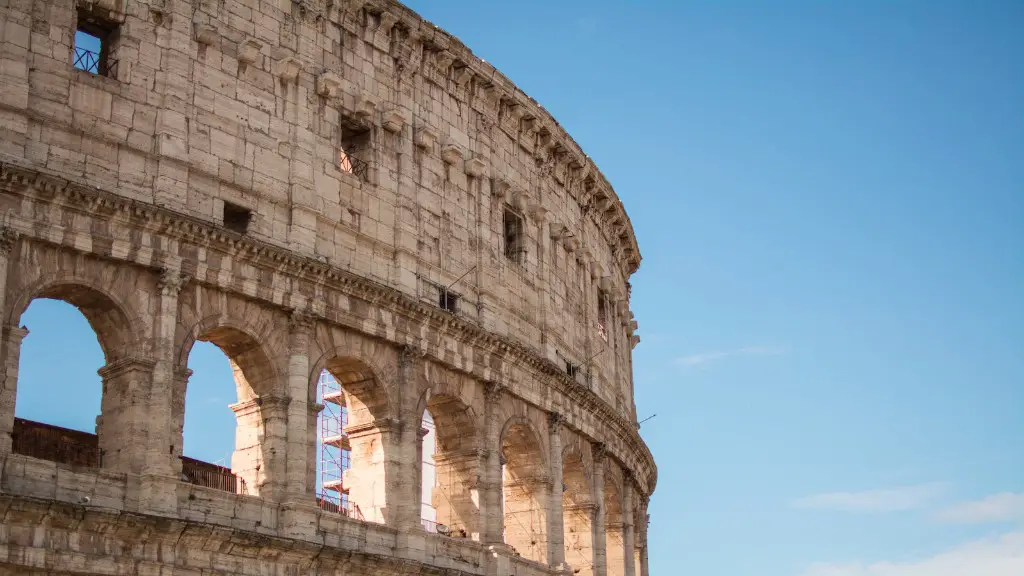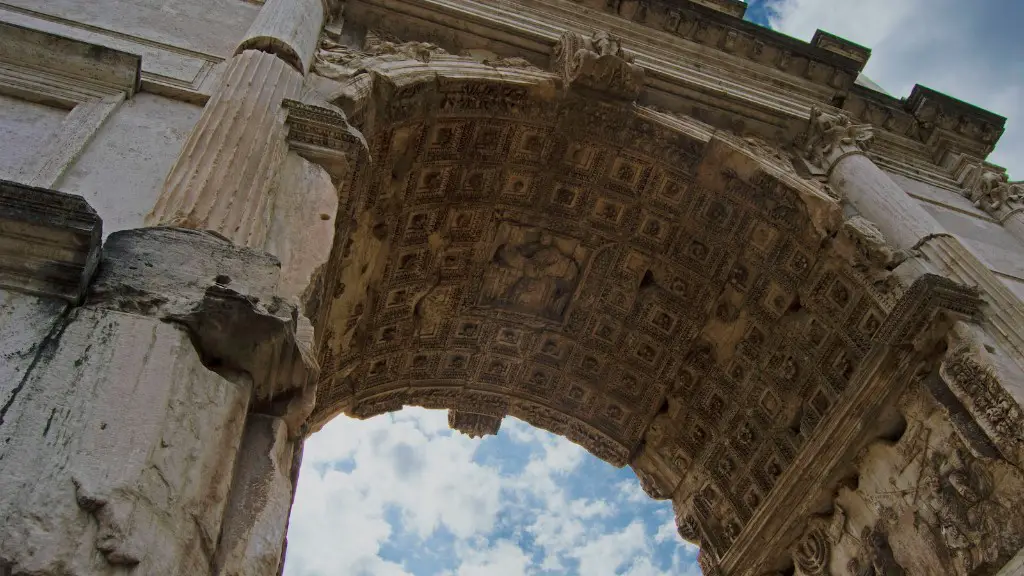The Roman Republic was established in 509 BC, and grew to become one of the largest empires in history. At its height, the Roman Empire controlled the entire Mediterranean Sea. How did Rome come to dominate this important body of water?
The Roman Republic was founded on the tenets of democracy and egalitarianism, which allowed it to quickly gain support from the people. Additionally, Rome had a strong military and political structure that allowed it to easily expand its territory. The Roman Empire also benefited from its location. Rome was situated in the center of the Mediterranean, which made it easy to control trade and communications in the region.
The Roman Empire was a major maritime power, and its fleets were able to patrol and protect the Mediterranean Sea. Rome also built a series of fortifications and roads that helped it maintain control over its vast territory. The Roman Empire was able to dominate the Mediterranean Sea through its strong military, political, and economic power.
The Roman Republic began its rise to power in the Mediterranean during the First Punic War with Carthage. Rome had a minor role in the conflict at first, but their involvement increased as the war went on. By the end of the war, Rome was the dominant power in the Mediterranean and had established itself as a major player on the international stage. The Republic continued to grow in power and influence over the next several centuries, culminating in the conquest of the entire Mediterranean basin under the rule of the Emperor Augustus.
When did Rome dominate the Mediterranean?
The Roman Conquests reached overseas during the Punic Wars with Carthage. This was a period of great expansion for Rome, and they were able to spread their influence to multiple Mediterranean islands and the east coast of modern-day Spain. This was a great accomplishment for the Roman Empire, and it showed their strength and power.
Rome was able to gain power in the Mediterranean region by conquering many different territories. They offered citizenship to many of the people they conquered, which helped to incorporate them into Roman society. This allowed Rome to maintain control over the area.
Why was the Mediterranean so important to ancient Rome
Rome’s proximity to the Mediterranean Sea allowed for trade with cities in Greece, northern Europe, and North Africa. Additionally, it helped Rome in conquering new lands. The Romans were inspired by the Phoenician’s shipbuilding and used their designs to build their own ships.
The Punic Wars were a series of three wars fought by Rome and Carthage between 264 BC and 146 BC. The wars were fought for control of the valuable Mediterranean trading routes. After destroying Carthage to the west and expanding east to Egypt, Rome had full control of the Mediterranean Sea.
How did Rome rise as the center of Mediterranean trade?
Rome’s central location made it an ideal place for trade even before the city rose to power. This centrality later helped the Romans effectively administer their empire by reducing communication times.
The Roman era of Greek history began with the Corinthian defeat in the Battle of Corinth in 146 BC. However, before the Achaean War, the Roman Republic had been steadily gaining control of mainland Greece by defeating the Kingdom of Macedon in a series of conflicts known as the Macedonian Wars.
Why is the Mediterranean so important?
The Mediterranean Sea is a key release valve for Europe. In terms of trade, the body of water links the Atlantic Ocean to the Indian Ocean and is therefore a key chokepoint for global trade. The fact that it is also a release valve for Europe has made it a target for migration and piracy throughout the centuries.
The Roman Empire was one of the largest empires in history. At its height, it controlled all the shores of the Mediterranean, stretched north to England and up to the Rhine river in Germany and east to Hungary, including Rumania, Turkey and all the Near East. The Roman Empire was a major force in the world for centuries, and its influence can still be seen today.
What empire controlled the Mediterranean
Augustus founded the Roman Empire in 27 BCE and the Mediterranean sea began to be called Mare Nostrum (Latin: “Our Sea”) by the Romans. Their empire was centered on this sea and all the area was full of commerce and naval development. For the first time in history, an entire sea (the Mediterranean) was free of piracy.
The most formidable Mediterranean power Rome faced was Carthage. With a professional army and a large navy, Carthage was a major force in the region. Rome and Carthage fought several wars, with the last one ending in the destruction of Carthage.
When did Rome become a major power in the Mediterranean region?
It was the Punic Wars from 264-146 BC, along with some conflicts with Greece, that allowed Rome to take control of Carthage and Corinth and thus become the dominant maritime power in the Mediterranean. Soon after, Rome’s political atmosphere pushed the Republic into a period of chaos and civil war. This period of turmoil eventually led to the rise of the Roman Empire.
Mediterranean trade routes were used by the Romans to transport goods throughout their empire. The routes were also used by other empires, such as the Ottoman Empire, to connect different parts of their empires. Although the routes were often controlled by one central empire, they were used by many different people and cultures.
When did Rome become more powerful than Greece
Over time, Rome increased in size, power, and trade. By 146 BCE, Romans had conquered the Greek city-states. This gave them control over the major trade routes in the Mediterranean. Roman trade expanded further after they conquered Egypt in 30 BCE. They also began to trade with other parts of Europe and Asia. Roman trade was very important to the economy of the empire.
In 146 BC, the Greek peninsula became a Roman protectorate. The Aegean islands were added to this territory in 133 BC. Athens and other Greek cities revolted in 88 BC, and the peninsula was crushed by the Roman general Sulla.
Why did Greece lose to Rome?
A more mobile and more flexible army has a greater chance of winning the battle than a rigid army. The Roman army was much more flexible than the Greek phalanxes. The Roman legions could march up to 40 kilometers a day, whereas the Greek phalanxes could only march about 10 kilometers a day. The Roman legions could also build improvised bridges and fords, whereas the Greek phalanxes could not.
The Mediterranean Sea has historically been a vital part of the global communication network, playing a major role in the exchange of goods, ideas, and people between different cultures. The sea has also served as a barrier, preventing clashes between people with different interests and ideologies from different parts of the world. In short, the Mediterranean Sea is a unique and irreplaceable asset that has played a vital role in the development of human civilization.
Why is the Mediterranean sea important to ancient cultures
The ancient world was a complex and fascinating place, and the Mediterranean Sea was a key part of that. As people began to develop civilizations, they formed extensive trade routes throughout the region. These routes allowed for the exchange of goods and ideas, and helped to shape the cultures of the ancient world.
The Mediterranean Sea has been known by many names throughout history. The most common name in antiquity was Mare Nostrum, or “Our Sea.” This name reflects the fact that the Roman Empire controlled the surrounding lands and the sea itself. Other names include Mare Internum (“Internal Sea”), Mare Magnum (“Great Sea”), and Mare Mediterrāneum (“Middle Land Sea”).
Warp Up
The Roman Republic was founded in 509 BC by Romulus and Remus, two of the sons of Mars, the god of war. The Romans quickly became a major power in central Italy and within a few hundred years had conquered all the other major cities of the Italian peninsula. In 275 BC, the Romans turned their attention to the Mediterranean, defeating the armies of Pyrrhus, the king of Epirus, in a series of wars. By 264 BC, they had defeated the Carthaginians, the major power in the western Mediterranean, and had established their control over Sicily and Corsica. In the next few decades, they extended their control to Spain, North Africa, and the eastern Mediterranean, defeating the Macedonians, the Seleucids, and the Ptolemies, the rulers of Egypt. In 27 BC, the Senate proclaimed Augustus Caesar, the first Roman Emperor, and the Roman Empire was born. The Roman Empire reached its greatest extent under the Emperor Trajan, who ruled from 98-117 AD. By the end of the 2nd century AD, the Romans controlled the whole Mediterranean basin.
Through a combination of military might, political maneuvering, and economic prowess, Ancient Rome was able to establish and maintain control over the Mediterranean region for centuries. Even after the fall of the Roman Empire, the Mediterranean remained an important trade route and cultural crossroads, thanks in large part to Rome’s lasting impact.





